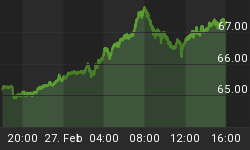Billionaire Donald Trump isn’t likely to vote for Presidential candidate Senator Elizabeth Warren, but even if the would-be presidential candidate is threatening a massive wealth tax, it doesn’t mean all billionaires are up in arms.
Warren also isn’t really under threat of losing a large electoral base over it, either. The billionaires club doesn’t boast a big membership number. In total, that’s 607 people.
During the latest Democratic debate, former Texas congressman Beto O’Rourke and fellow Democratic presidential candidate accused Senator Warren of being “punitive” towards the wealthy in her tax plan and rhetoric.
According to a plan revealed in January, Warren is calling for a 2-percent annual tax on households with a net worth between $50 million and $1 billion, and a 3-percent annual tax on households with a net worth over $1 billion. Her plan estimates it would apply only to 75,000 of the richest families and would raise $275 billion a year.
Expectedly, there is broad public support for Warren’s wealth tax plan as polls show that at least 60 percent of Americans support a tax on wealth.
But there’s also support from the billionaire quarter.
As it turns out, billionaires aren’t threatened by this at all. For them, it’s a drop in the bucket. Most recently, former Goldman Sachs partner and hedge fund giant Michael Novogratz told Bloomberg that it was 'insanity' that his billionaire friends felt like “victims” of Warren's proposed wealth tax
“Ninety-seven percent of the people I know in my world are really, really fearful of her,” he said. “They don’t like her, they’re worried about her, they think she’s anti-rich… It’s a little carried away.”
In June, 20 billionaires signed on to a letter essentially asking to be taxed more. That includes George Soros, Abigail Disney, and members of the Pritzker and Gund families. They’re not only supporting a wealth tax--they demanding one.
Bill Gates, the world's second-richest person, didn't sign it but has since said he doesn’t oppose a wealth tax. Real estate magnate Eli Broad had also separately spoken up in favor of a wealth tax.
As a case in point to Senator Warren’s campaign, economists Emmanuel Saez and Gabriel Zucman release a study earlier this month finding that for the first time in 100 years, the average tax rate paid by the richest 400 families in the country was lower than the rate paid by the bottom half of American households last year.
In the late 1950s, the total tax rate for those wealthiest families stood at 70 percent. Since then, it’s been a downward spiral. They enjoyed a 56 percent tax rate in 1960 and a 47 percent tax rate in 1980, while the working class's tax rate has remained relatively stable.
Related: Positive Economic Data Weighs On Gold
President Trump once backed a wealth tax but in 2017 enacted a dramatic tax cut that favored the rich.
After those tax cuts took effect, the tax rate on U.S. billionaires fell to just 23 percent.
Warren’s wealth tax policy proposal was inspired by the University of California-Berkeley economists Saez and Zucman.
Out of 2,153 billionaires worldwide, 607 reside in the U.S. This year alone, the U.S. gained 21 new billionaires--minting them like crazy. That's slightly more than a 50-percent increase compared to 2010 when the U.S. had 404 billionaires.
Last year’s study by the Institute for Policy Studies says the richest 400 Americans have a combined net worth of $3 trillion, equal to of the bottom 61 percent of the U.S. population, or some 194 million people. They also own 3.5 percent of the country’s assets.
Still, even though small in number, billionaires can surely have their say in the elections through the various funding.
As for other aspiring Democratic presidential candidates, with Bernie Sanders’ tax plan, also advised by Saez and Zucman, billionaires could face a 97.5-percent average effective tax rate. Sanders’ plan goes further than Warren’s because it starts with fortunes that are worth less, kicking in at $32 million.
Presidential candidate and South Bend Mayor Pete Buttigieg has also expressed openness to levying a wealth tax.
On the other side of the Democratic divide, O’Rourke, former Vice President Joe Biden and Sen. Amy Klobuchar want modest increases or changes in income tax rates.
But since Trump made his way into office, it’s either go big, or go home, so one way or another, it’s got to be dramatic.
By Fred Dunkley for Safehaven.com
















